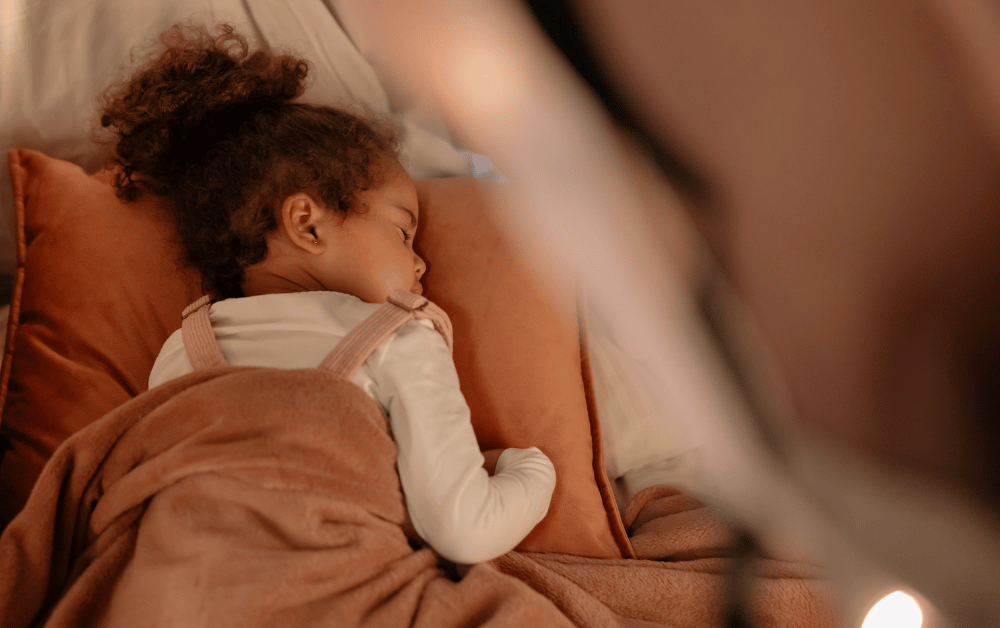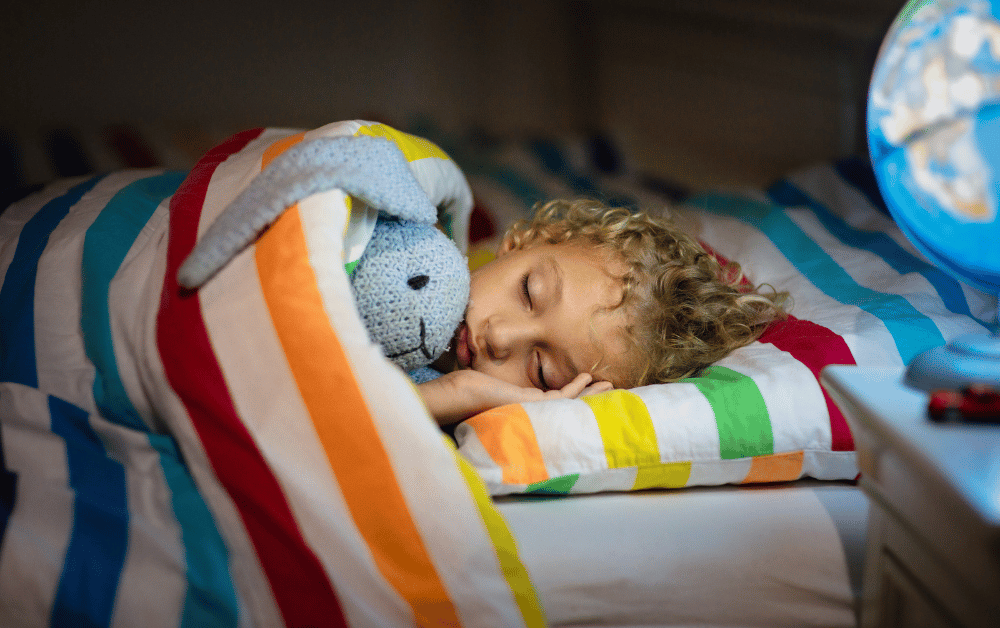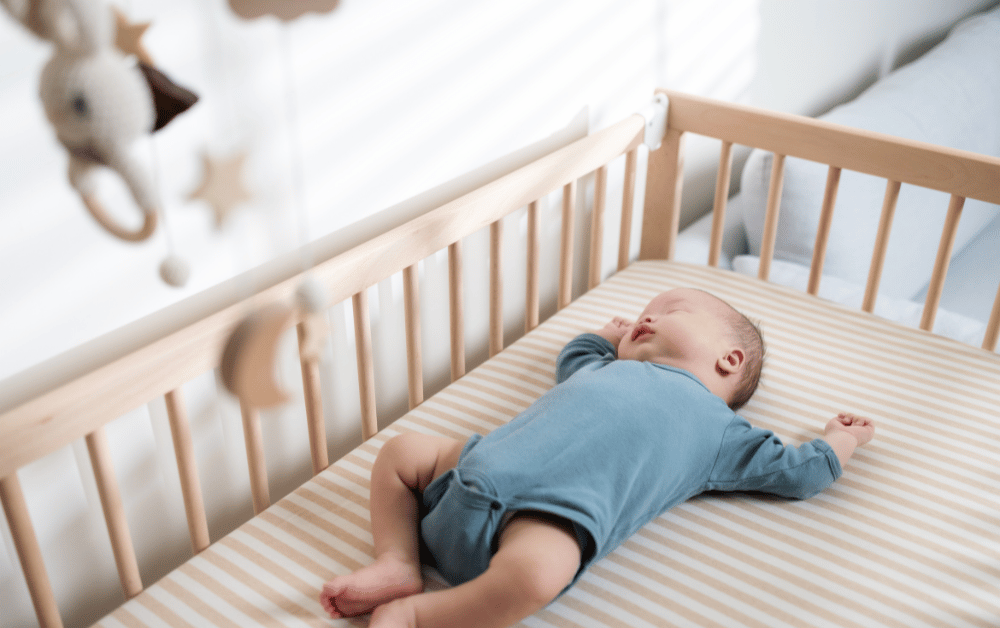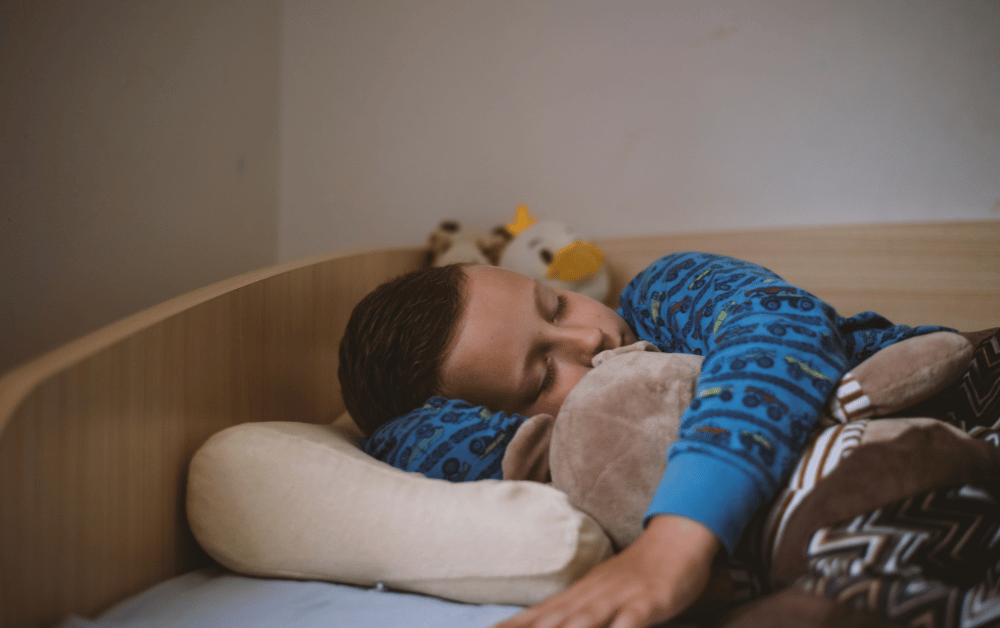Putting your child to sleep is one of the many challenges that parents with autistic children may face. Many find themselves asking the question: How can I help my autistic child sleep through the night? Over 80% of autistic children experience sleep disturbances, so if your child takes hours to fall asleep, wakes often, or rises far too early, you are not alone. It’s ok to feel overwhelmed or confused by these challenges, but remember that there are practical steps you can take to support better rest.
In this guide, we’ll go through why sleep is often disrupted in autism, how to create an effective autism bedtime routine, ways to improve the sleep environment, daily habits that make nights easier, and when it may be time to seek professional help.

Understanding Autism Sleep Problems
Many parents struggle with their child's sleep issues. These problems are often ongoing, meaning that they’re not just occasional. Children assessed with autism may find it hard to fall asleep, wake up several times during the night, or get up very early in the morning. This situation can lead to stress and exhaustion for the whole family. It can also affect mood and learning during the day. Many parents express their frustration, saying, “My autistic child won’t sleep,” as they look for solutions.
When it comes to the challenges around sleep for children with autism, several factors are at play. Many of these kids have heightened sensory sensitivities, meaning that even the slightest noise or a flickering light can become overwhelming. For others, their circadian rhythms may not align with typical sleep patterns, making it tough for their bodies to settle into a sleep routine. Additionally, issues like anxiety, unexpected changes in their daily schedule, or medical conditions such as reflux or sleep apnea can further complicate things. By understanding these underlying reasons, we can start to find effective sleep solutions for autism that truly help children!

How to Create an Autism Bedtime Routine
One of the best things you can do to help your child sleep better is to create a consistent bedtime routine. When children know what to expect as the day comes to an end, it makes the transition to sleep much smoother. You don’t need an elaborate plan; even a simple sequence like brushing teeth, putting on pajamas, reading a soothing story, and turning off the lights can work wonders. Many families also find that using visual schedules or social stories helps make this routine feel more predictable and less overwhelming for their kids.
Having a consistent bedtime routine is important. Try to follow the same steps at the same time each night, even on weekends. This helps your child feel safe and know what to expect. If you need to change bedtime, do it slowly by making small changes. For parents of autistic children, gentle sleep training methods, like the “gradual retreat” approach, can help your child learn to fall asleep more on their own. By keeping expectations clear and routines predictable, you can make bedtime easier and more peaceful for your child!

Try Optimizing the Sleep Environment
A comfortable bedroom can really help a child fall asleep and stay asleep, even when you have a good bedtime routine. For families with autistic children, changing the sleep environment is important.
- Create a cool, dark, and quiet room for better sleep.
- Use blackout curtains to block early morning light.
- Consider white noise machines to mask sudden sounds.
- Check fabrics for tags or seams that could irritate sensitive skin.
Remember that these small details can make a big difference in how easily your child falls asleep!
It's essential to test and observe what works best for your child. Some kids benefit from sensory supports, while others may not. Things like weighted blankets, soft nightlights, or soothing music can help some autistic children feel more at ease, but for others, these might be too much. The best approach is to change one thing at a time, see how your child responds, and keep what helps. Creating a calming and safe environment is all about finding the right balance for your child.

Simple Daily Habits That Improve Sleep
What happens during the day really affects how well someone sleeps at night, especially for children with autism. To help improve sleep, parents can try a few simple things during the day:
- Getting plenty of natural light in the morning helps set the body's clock.
- Regular exercise makes it easier to fall asleep later.
- Eating balanced meals at the same times each day can help establish a routine.
- For older kids, keeping naps short and taking them earlier can promote smoother bedtimes.
- With these consistent daytime routines, bedtime can be a lot easier!
- Evening habits matter as much as daytime routines.
- Avoid caffeine, sugary snacks, and heavy meals close to bedtime to promote better sleep.
- Turn off screens (TVs, tablets, phones) at least one hour before bed to prevent interference with melatonin production.
- Engage in gentle activities before bed, such as drawing, reading, or listening to calm music
Over time, these daily adjustments can ease the frustrations you feel when your autistic child won’t sleep.

Considering Melatonin Alternatives for Autism
Melatonin often comes up in parenting discussions and at doctors' visits, but it's not the only choice for helping kids, especially those with autism. While some children might benefit from melatonin supplements with a doctor's advice, there are plenty of other effective strategies to try first. Simple things like deep breathing, gentle massages, or mindfulness activities can really help kids relax. It's also important to keep a consistent schedule for waking up and going to bed, and to create a comfortable sleep environment, which can encourage the body to produce melatonin naturally.
Sleep patterns can be quite unpredictable, especially for kids with autism. Sometimes, they might suddenly have trouble sleeping after they've been doing well. This can happen for various reasons, like getting sick, traveling, going through developmental changes, or feeling more stressed than usual. For parents, it's good to know that these sleep regressions are typically temporary. Getting back to a simple routine and a calm environment can really help improve sleep and bring back consistency.

When Professional Help May Be Needed
Despite your best efforts, there may be times when sleep challenges still persist. If after several weeks of consistent changes your child is still struggling, it may be time to seek medical support. Warning signs include loud snoring, breathing pauses, seizures, reflux, or constant night wakings that leave your child exhausted during the day. A pediatrician or sleep specialist can evaluate whether an underlying condition is contributing and recommend next steps, such as a sleep study.
It’s important to remember that asking How can I help my autistic child sleep through the night? is not just about home routines but also about knowing when to get professional guidance. Specialists can provide reassurance, offer personalized strategies, and, when necessary, suggest safe treatment options.

Get Support Beyond Bedtime
Coping with your child's sleep difficulties can be exhausting, especially alongside a new autism diagnosis. You don’t have to face this alone. Our Autism Support team is here to help you navigate the next steps after your child’s assessment. We can assist with recommendations, funding applications, and connecting you to the right services. While you work on sleep routines at home, we’ll ensure your family feels supported every step of the way, day and night.

How to Improve Sleep in Autism: Final Thoughts
Dealing with sleep issues can be challenging for both kids and parents, but there are ways to manage them. It’s important to know what sleep problems can arise with autism and to establish a consistent bedtime routine. Making changes in the environment, improving daily habits, and looking into natural alternatives to melatonin can all be helpful. Sometimes, you might experience setbacks like sleep regression, but sticking to the basics can often bring things back on track.
Most importantly, remember that you are not alone. Many parents have asked, “How can I help my autistic child sleep through the night?” and found answers through patient trial, structure, and sometimes professional support. Every child is different, and what works for one may not work for another. By being consistent, kind, and open to advice, you can help your child get the rest they need. This will also give you the peace of mind that you deserve.

Dr. Ali Eslami, Chief Editor
Dr. Ali Eslami is a child psychiatrist at BC Children’s Hospital and All Brains Clinic with a PhD from Brown University. With expertise in neurodevelopmental disorders, autism assessment, and AI research in mental health, he ensures every article meets the highest standards. His sharp editorial eye guarantees clarity, accuracy, and credibility in all our content.

.svg)


.svg)
.png)



.png)


.svg)








.svg)




